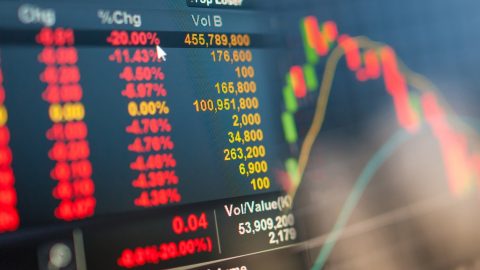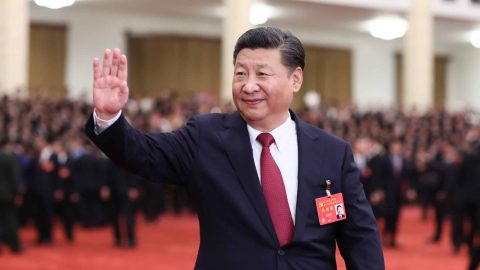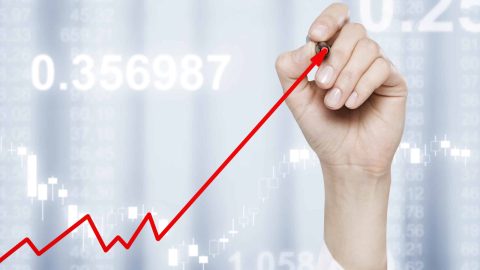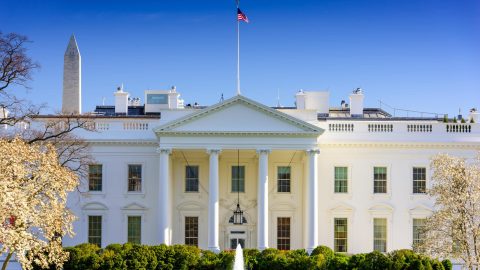Author's Contributions

2020 – the critical year
Not many people live to see the world at the threshold of a historically unique shift. But that is exactly where we are right now. Although we have known for many years that we are taking the planet to its limits, the scientific results have never been as clear as today. The drastic decline in […]
Sell in May and go away?
Every year at the beginning of May, investors are faced with the question of whether they should leave the stock exchanges and take the profits generated up to that point, and return at a later date in autumn. But is the old stock market adage “Sell in May” still valid?
IMF conference in Washington: cautiously upbeat sentiment about emerging markets
Senior Funds Manager Felix Dornaus summarises his learning points from the presentations by the International Monetary Fund in Washington on 20 to 23 April 2018. Who were the winners and who the losers?

Turkey´s astonishing rush to early elections
Amalia Ripfl, Senior Fundmanager explains Turkey´s rush to early elections: who profits and what does it mean for the equity market?
Judging Managers’ Character
It is often overlooked and due to its elusive nature, there is no standardized way to judge someone’s character. The topic rarely appears in textbooks or professional courses, and investors are generally skeptical about their ability to asses it. Which leads to the following question: Is it knowable? In other words, is there some reliable way to judge someone’s character?
Helping people to help themselves
There are investments that create a better world. Microloans give people in the Third World a chance to a better life and facilitate a stable yield for domestic investors.

Knowing the Future: parallels between weather and financial forecasting
Google ‚forecasting future‘, and over 28 million hits appear. Clearly, knowing what will happen before it happens is big business: from financial markets to the weather, and anything in between, says Rosmarie de Wit, Austrian center for meteorology (ZAMG).
Quo Vadis Italia? – The 2018 general election in Italy and its importance to the economy
The economic environment for Italy remains challenging. The fundamental problem is the low economic growth. Although the composition of the future government is still unclear, the party programs imply a persistent reform deadlock.
Investment stories in Latin America
The BBVA Latin American Local Markets Conference in London gave Christian Gaier, senior fund manager of government bonds of emerging markets, the chance to talk to local Latin American representatives. In our blog he shares some of the insights he gained and the narratives that may affect 2018.
Czech Presidential Election and the reaction of the markets
With both rounds of the Czech presidential election behind us, we can now take a look back at some of its highlights. Incumbent Milos Zeman reaped a narrow edge over his challenger Jiri Drahos.
European banks: Outlook for 2018
European banks (as measured by the Stoxx 600 Banks Index) had a decent year in 2017: the index climbed more than 8%, slightly outperforming the broader European market (Stoxx 600 Index). The strongest positive impulse came from the French elections in April last year, where the populist threat was successfully defeated by Emmanuel Macron, arguably the most market-friendly candidate among the contenders. A robust European economy and a solid business sentiment throughout the year also helped banking shares go higher.

Interview: “Future 2050 – the era of sustainability and smart machines”
Interview with Ulrich Eberl, one of the most renowned German-speaking scientific journalists and futurologists. Among the books he has published are “Zukunft 2050 – wie wir schon heute die Zukunft erfinden“ (“Future 2050 – how we are inventing the future today”) and “Smarte Maschinen – wie Künstliche Intelligenz unser Leben verändert“ (“Smart machines – how artificial intelligence changes our lives”).
Xi Jinping’s New Era
Certainly, the National Congress of the Communist Party of China held every five years in Beijing is an important political event, but this year’s Party Congress was a milestone. It marked that a new era has begun in China. President Xi Jinping cemented his power further as China’s paramount leader, a leader, who might rule the country on the coming decade, a leader, who has high ambitions.
Emerging markets – not a pure commodities story any longer
The global economy is experiencing significant growth, and the emerging markets have felt the increased economic growth rates as well. Even in problematic countries such as Brazil or Russia, the situation has been picking up due to the increased oil price.
China on the way to new strength
Driving through Beijing you will see megalomania without limits – in houses, traffic, and people. A trip in a tuk-tuk, which looks like a motorcycle on three wheels, allows you a short glance into the past. It is at these moments that the rift between rich and poor becomes obvious.

IMF-meetings in Washington: positive outlook for emerging markets
The following points reflect my impressions at the presentations that I attended at the IMF-meetings in Washington from 12 to 15 October 2017.
Renmimbi – a managed currency
Long enough we have heard about the depreciation of Chinese currency Renmimbi (RMB), but this year RMB has showed rather unusual movements.
European bank shares picking up
After years of drought, European bank shares have shown a solid performance in the year to date.
US debt ceiling keeping the financial markets on their toes
The Trump administration should be keeping the financial markets on their toes in the coming weeks. Yet again, the issue is the government debt which will soon reach its statutory maximum.
Tailwind for biotechnology companies
Biotechnology shares have been among the top performers in the past ten years. After the above-average performance from 2010 to the beginning of 2015, hedge funds set off a consolidation that is now coming to an end. The NASDAQ biotechnology index, the most important barometer for biotech shares, has gained 25% in the year to date (source: Reuters Datastream, as of 31 August 2017).
Alternative investment strategies: part 3
In Part two of this series on alternative investment strategies, we described the most important strategies “trend following”, “global macro”, and “long/short equity”. In this Part three, we will be looking at approaches that are less well-known but equally tried and tested.
Alternative investment strategies: part 2
After illustrating what alternative strategies are in part 1 of this series, how they work, and what benefits and disadvantages they come with, we would now like to discuss some of the most important representatives of this set of strategies. In the following strategies (also called hedge funds), the majority of the capital invested is allocated to alternative models.

A niche product with solid returns: hybrid and subordinated bonds with investment grade rating
Author: Christin Bahr, Product Management Securities Erste Group It has been half a year since the launch of the new hybrid bond fund. Reason enough for us to talk to Roman Swaton, Senior Fundmanager.
Alternative investment strategies: part 1
Author: Christian Süttinger Senior Fund Manager Multi Asset Management In the USA, gradually rising interest rates have already become reality. In Europe and in another large economic area, i.e. Japan, the subdued economic development has prevented interest rates from increasing to date. The European Central Bank manages interest rates in such a way as to […]

Afterthoughts on the Turkish referendum
After the ballots were counted on 16 April 2017, the state-run Anadolu news agency reported that “Yes” had won by securing 51.4% of the votes, which was later also confirmed by the Electoral Commission. Serious concerns were raised by the OSCE. It is also important to note that the referendum took place during a “state of emergency”. That is to say, in a highly repressive climate in which the President and the government controlled the media, jailed critical journalists and leaders of pro-Kurdish parliamentary opposition, and arbitrarily detained and prosecuted the President’s opponents. The result of the referendum has paved the way for the most controversial changes that Turkey has faced in its history.

My impressions from IMF meeting in Washington: Emerging markets “alive and kicking”
The spring meeting of the International Monetary Fund was held in Washington from 20 to 23 April. This event was the reason for an investor conference that I attended in order to get an idea of the status quo of the global economy as well as of risks and opportunities.

What the Turkish referendum means for the capital markets
A “Yes” to Erdogan’s planned constitutional amendment in Turkey would constitute a double-edged sword for investors: the planned presidential system could mean a short-term relief for the markets and for the economy. However, in the long run, this scenario harbours big risks. That being said, a “No” would not help investors either.
Czech National Bank removes currency floor
Author: Anton HauserSenior Fundmanager Emerging Market Bonds Three and a half years after introduction, the Czech National Bank decided today to remove its 27 CZK/EUR currency floor. Many investors were expecting this decision. Indeed, this trade is currently one of the most popular ones among investors. As expected, the Czech koruna appreciated slightly against […]

High yields and a potential turnaround make LATAM bonds an interesting investment
Autor: Christian Gaier, Head of Fixed Income Rates, Sovereigns & FX, Erste AM I would like to share my impressions from my latest investor conference in London that I attended on 16th January 2017. The conference was organized by Banco Bilbao Vizcaya Argentaria (BBVA), a leading global financial group with a strong franchise in 35 […]
Brazil: Hope for change stimulates bonds
Author: Felix Dornaus, Senior Fund Manager Emerging Markets Bonds Brazil tactically overweighted at the moment Most of the fundamental economic data are currently not good. In 2016, the country is in recession; for 2017, a minor growth rate of +0.7% is expected. The nominal budget deficit of 2016 is about -10%, with a primary deficit […]
Central and Eastern Europe poised for comeback
Author: Dieter Kerschbaum, Communications Specialist Austria Interest rates are at record lows in the euro area, as a result of which investors can feel a great deal of pressure to achieve acceptable yields. This situation shifts their focus back to the countries of Central and Eastern Europe (CEE). Central and Eastern Europe currently comes with […]
Bond markets suffering from decline in liquidity
Author: Martina Groll, Senior Fund Manager The bond purchase programme of the European Central Bank has caused a drought on the bond markets. As a result, investors now have to take into account the liquidity risk on top of the interest rate risk and the default risk.



















